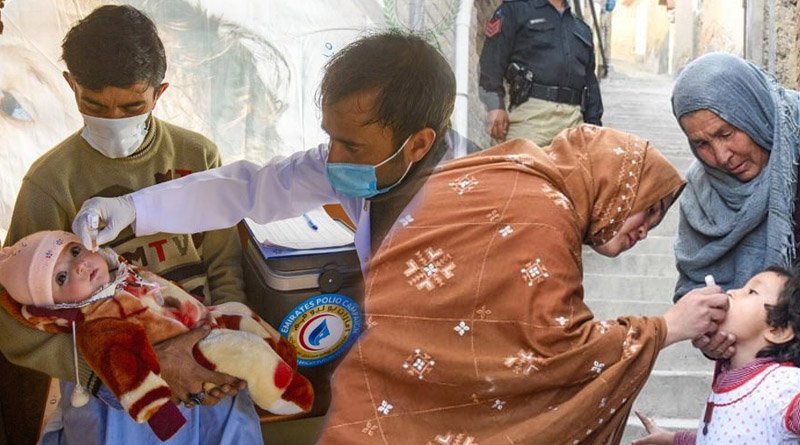Ms. Agnes discussed Pakistan’s polio infrastructure as a strength and an opportunity to use it for other health and emergency responses following eradication.

The French Development Agency (AFD), which is dedicated to supporting the Government of Pakistan in its efforts of eradication of polio, has joined the group of organisations working to eradicate the disease globally.
A delegation from the AFD and the Bill and Melinda Gates Foundation met with the Special Health Secretary and the National Emergency Operations Center (NEOC) for Polio Eradication on Friday. The delegation travelled to Pakistan for a week to assist with health and social protection initiatives there. The meetings were a part of that trip.
The Pakistan Polio Eradication Initiative (PEI) received commitments from the AFD to support it in immunisation efforts, disease surveillance, polio campaign monitoring, and other technical areas, as well as to cover the $55 million funding gap (under the PC-1 for polio eradication, 2022–2026).
Dr. Shahzad Baig, the NEOC Coordinator, stressed the importance of the polio infrastructure to Pakistan’s healthcare system: “We are incredibly appreciative of the French government’s assistance. The COVID-19 response, which drew on the knowledge of polio surveillance teams, demonstrated how the polio infrastructure can provide the most reliable support for even the most difficult health emergencies, he said.
“The Pakistan Polio Eradication Program is a crucial component of our healthcare system, and investing in polio is an investment in the nation’s overall health system.”
Agnès Soucat, Director of Health and Social Protection for the French Development Agency, led the delegation, and Jay Wegner, Global Head for Polio Eradication for the Gates Foundation, also led the delegation.
The delegation spoke about how the polio infrastructure was at the forefront of responding to the COVID-19 pandemic and the most recent flood response during a meeting with the country representatives of WHO and UNICEF.
After the NEOC meeting, the Special Health Secretary, Mirza Nasir ud Din Mashhood Ahmad, held a debriefing at the Ministry of Health and discussed the effects of the floods of 2022, which damaged 2,000 medical facilities, on Pakistan’s health infrastructure.
“The Pakistani government remained committed to eliminating polio in the face of obstacles last year. The numerous vaccination campaigns we have held since the floods are evidence of our continued commitment to the cause “said the health secretary.
Ms. Agnes placed special emphasis on the improvement of the primary healthcare system, integrated disease surveillance and response systems, prioritising preparedness for future emergencies and re-emerging diseases, as well as enhancing the abilities of front-line staff to provide primary healthcare and other needs.
Additionally, Ms. Agnes discussed Pakistan’s polio infrastructure as a strength and an opportunity to use it for other health and emergency responses following eradication.
The delegation members expressed appreciation for the strides Pakistan has made in the fight against polio and promised to support Pakistan in its efforts to stop the spread of wild poliovirus this year, as planned in the global eradication strategy.
Polio hasn’t been present in the majority of Pakistan for almost two years. In seven districts of southern Khyber Pakhtunkhwa, wild poliovirus is still present and continues to threaten kids with weakened immune systems and malnourished bodies.
To ensure that every child receives the life-saving vaccine, the PEI, with the assistance of its partners, has increased vaccination schedules in these districts and continues to put forth avant-garde ideas, such as immunising children who live in nomadic communities and immunising children in transit.
